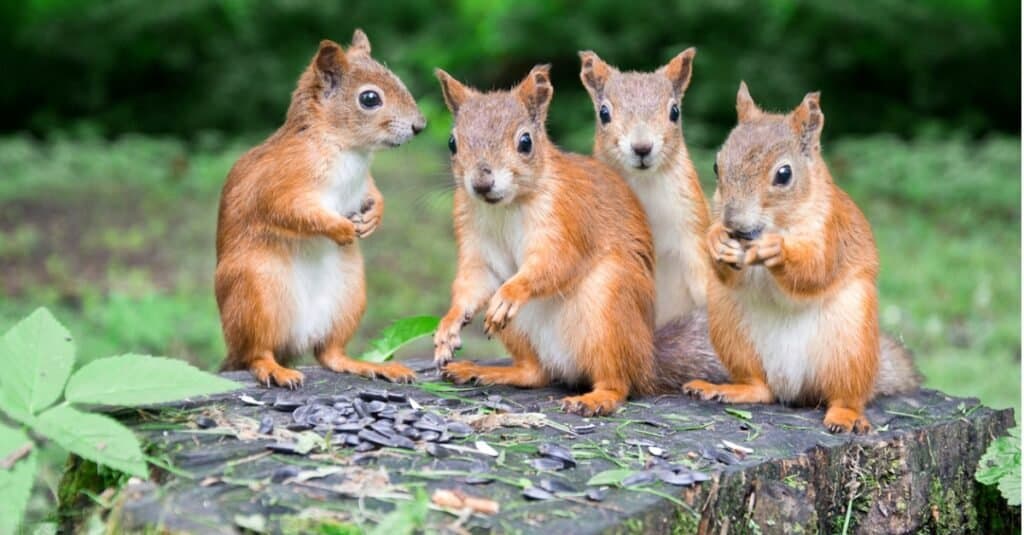
The post 10 Things You Never Knew About Squirrel Teeth, Tails, and Poop appeared first on A-Z Animals.
There are many intriguing facts about squirrels—some of which you likely have never even heard before. Squirrels are far more than just those cute creatures who wreak havoc in your garden or cause chaos in the woods. In fact, there are many myths about the animal, such as that they’re unintelligent, meek, and only eat nuts. However, when it comes to squirrels, there’s much more to them than meets the eye. If you’re looking to up your knowledge about these adorably small mammals, you’re in the right place. Here are 10 notable facts about squirrels.
1. Squirrels Are Rodents

A group of squirrels is known as a “scurry.”
©iStock.com/Tntk
Did you know that squirrels are actually rodents? That’s right—they’re in the same family as mice and rats. These bushy-tailed animals belong to the family Sciuridae, which includes other mid-sized rodents like chipmunks and groundhogs. According to Animal Diversity Web, there are over 2,000 species of rodents out there. In fact, they’re the largest order of mammals. Over 40% of mammals belong to the order Rodentia. Rodents are known for their sturdy bodies, short limbs, long tails, and ever-growing incisor teeth—a feature that will be discussed further in this list. Mammals of this order also tend to burrow and nest, a common habit for a variety of squirrels.
2. Squirrels Are Incredibly Smart Animals

Squirrels use their front teeth to gnaw on their food.
©Frozenmost/iStock via Getty Images
This squirrel fact might shock some. Contrary to popular belief, squirrels are actually incredibly intelligent creatures. Many believe that the rodent is unintelligent because of its often erratic behavior. It might appear like the animal acts merely on instinct without any sort of thought processing or problem solving, but that’s far from true. In fact, squirrels are so smart that they might even play dumb. One person on Reddit noted that his squirrels manipulate him into throwing them extra snacks.
That being said, squirrels are intelligent for a variety of reasons. For one, they engage in a practice called scatter hoarding, which involves burying seeds and nuts in multiple random locations to throw off competitors. This food storage strategy undoubtedly requires intellect and spatial memory. Additionally, squirrels are adaptable creatures that can survive in a variety of settings, from urban landscapes to lush forests. Their survival instincts are a testament to their intellect.
3. Squirrels’ Front Teeth Continue to Grow Throughout Their Lives
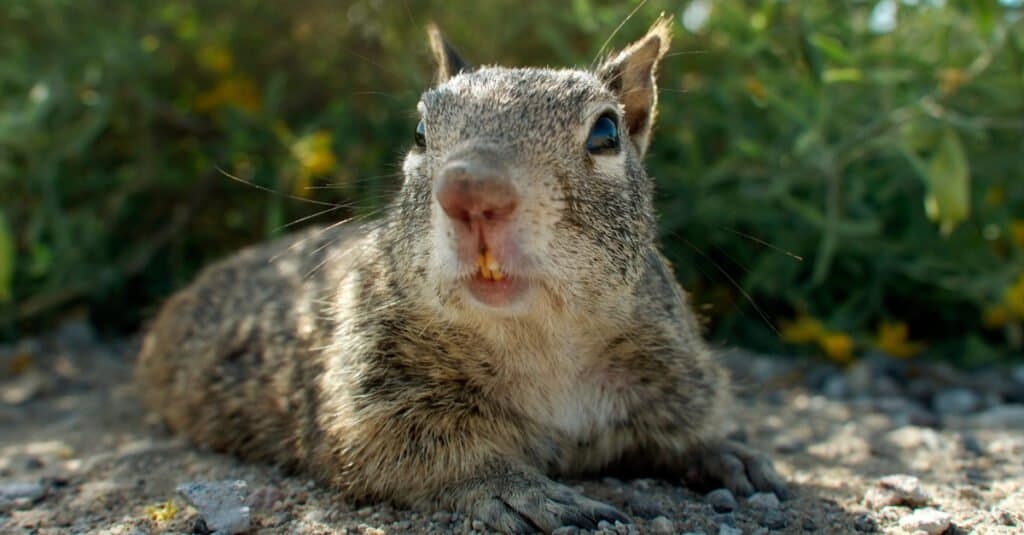
A squirrel’s teeth are usually orange/brown in color.
©Salty View/Shutterstock.com
As mentioned earlier, rodents are often characterized by their incisor teeth, which continue to grow throughout their lives. If you’ve seen a squirrel up close before or spotted one gnawing on an acorn, you’ve likely witnessed their razor-sharp teeth in action. Squirrels require their front teeth to gnaw on hard food like nuts, bark, and seeds. Of course, due to regular use, these incisors wear down over time, which is why they must keep growing. Without regular use, however, they’d become too long and potentially cause problems for the animal. That’s why they instinctively file them down through regular gnawing.
4. Squirrels Are Great Swimmers
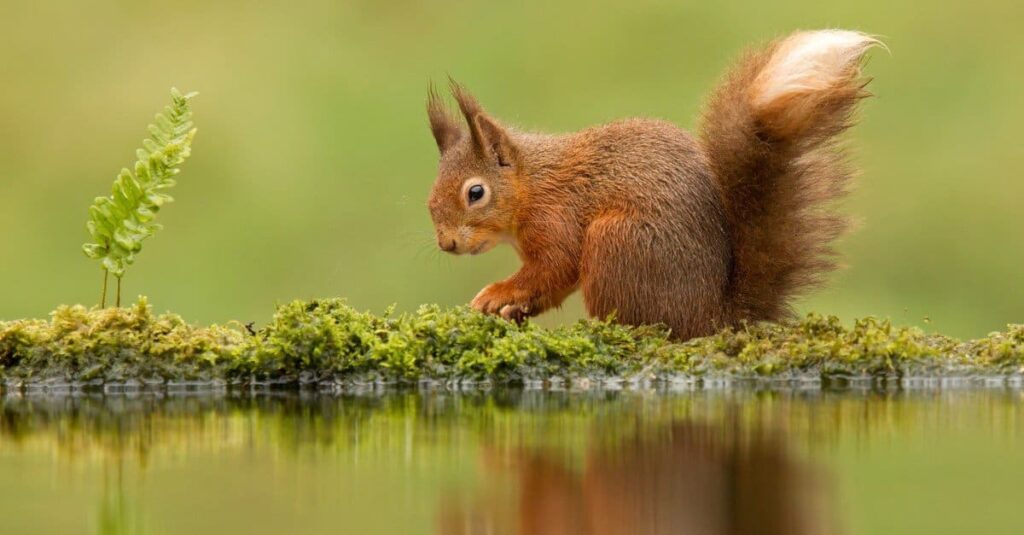
Many people are shocked to learn that squirrels can swim.
©Giedriius/Shutterstock.com
You’ve likely witnessed squirrels in a variety of settings. Perhaps you’ve noticed them climbing trees at a shocking speed. Maybe you’ve seen them sprint away from your dog, hopping from your lawn to your fence in a skilled manner. You might have even caught sight of one hanging from a branch.
However, have you ever spotted a squirrel in the water? While it might be a rare scene, squirrels are actually great swimmers. This is a squirrel fact that many people overlook, but squirrels can dog-paddle to escape danger or reach food sources in the water. Typically, they rely on their front legs for power and their tails for steering. While squirrels are talented swimmers, they’re not natural swimmers. In other words, they aren’t aquatic animals meant to stay in the water all day. This activity can be hard on their little bodies, but should they ever find themselves in water, they can at least get themselves back to dry land.
5. Squirrels Wag Their Tails When They’re Upset
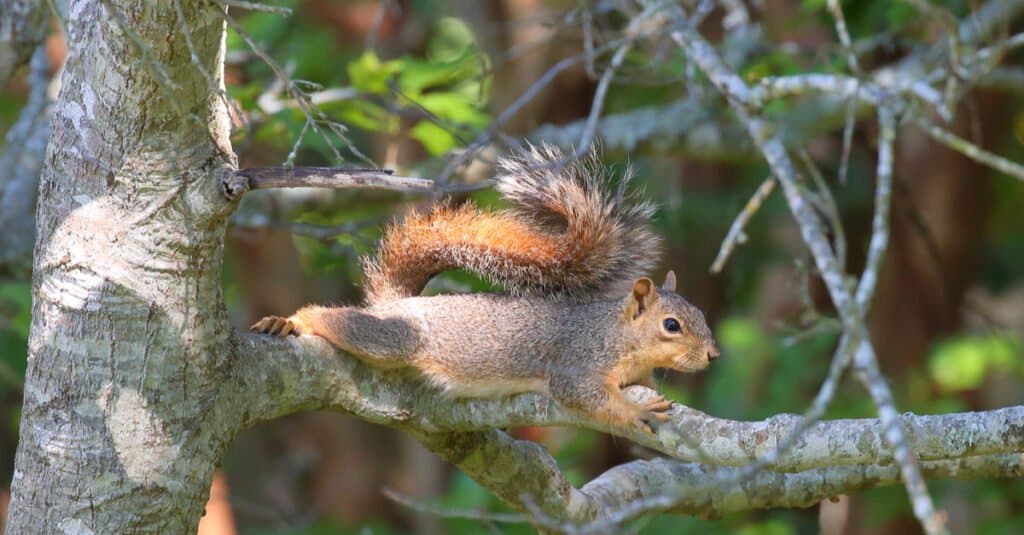
Squirrels’ tails are known to be big and bushy.
©JustPixs/Shutterstock.com
A wagging tail means a variety of things depending on the animal and the circumstance. For instance, a cat might wag its tail when it’s annoyed or uncomfortable, while a dog might do so to express excitement and happiness. When a squirrel wags its tail, it usually means the animal feels upset in some way. Squirrels often wag their tails to communicate a message. This might be a warning to other squirrels about potential predators or other dangers. On the other hand, it could also point to feelings of fear or even frustration. Odds are, if a squirrel is wagging or twitching its tail near you, you should probably back off.
6. Squirrels Run in Zig-Zags to Avoid Danger
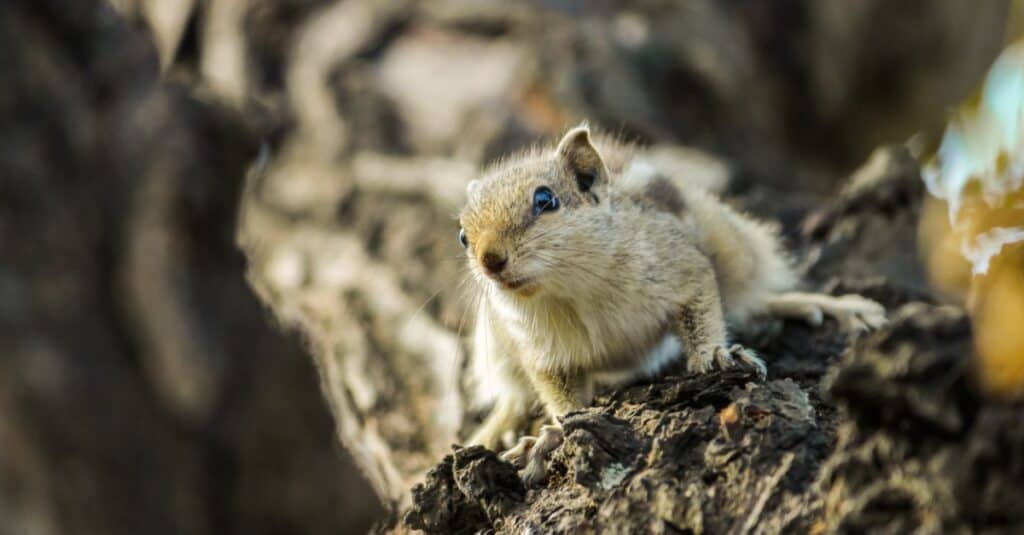
Squirrels have an excellent sense of smell.
©iStock.com/virat sharma
Did you know that squirrels purposefully run in zig-zags to escape from threats like birds of prey? This squirrel fact is even more evidence that squirrels are intelligent creatures. In fact, the mammal knows how to intentionally throw off its predators. When a squirrel is in danger and fleeing from a predator, it will often run in a zig-zag pattern. For example, if a hawk is trying to chase down a squirrel, it might have trouble tracking the animal as it abruptly and regularly changes directions. This defense mechanism disorients predators and helps the squirrel to escape before it becomes prey.
7. Squirrels Eat Insects
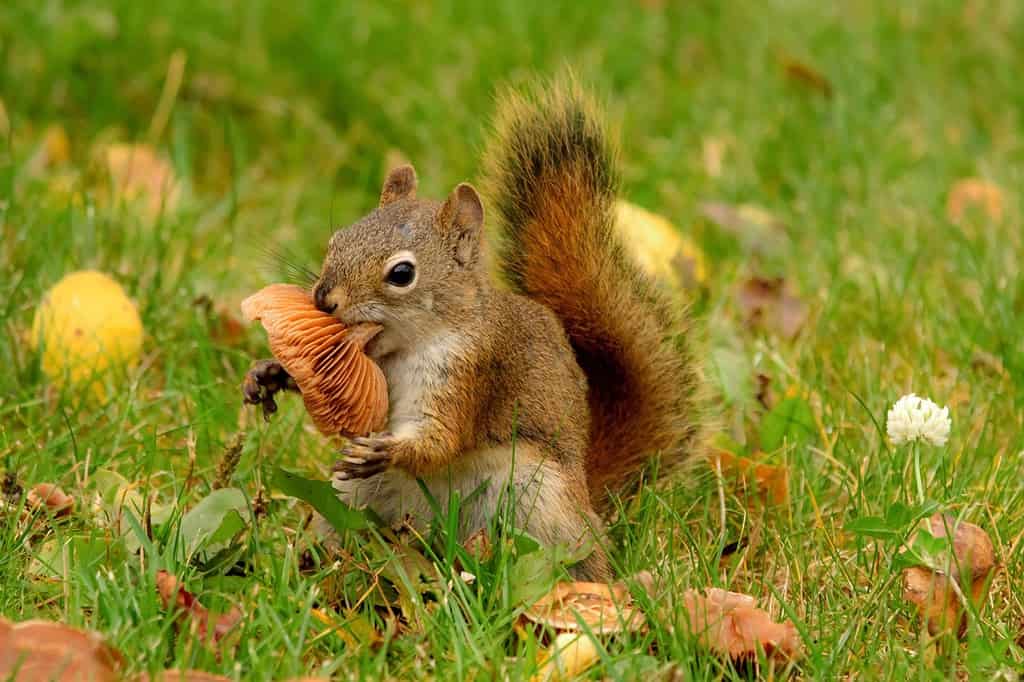
Squirrels often consume mushrooms.
©Saeedatun/Shutterstock.com
Many people believe that squirrels are herbivores who only eat nuts and seeds. However, squirrels are actually omnivores, meaning they eat both vegetation and meat. Squirrels tend to eat certain nuts, seeds, fruits, vegetables, fungi, and insects. In particular, they love to feast on caterpillars, crickets, grasshoppers, and larvae. However, they tend to prefer vegetation to insects and eat a mostly plant-based diet. That might be why you’re more likely to witness a squirrel chomping on an acorn than a cricket.
8. Squirrels’ Poop Can Be Toxic
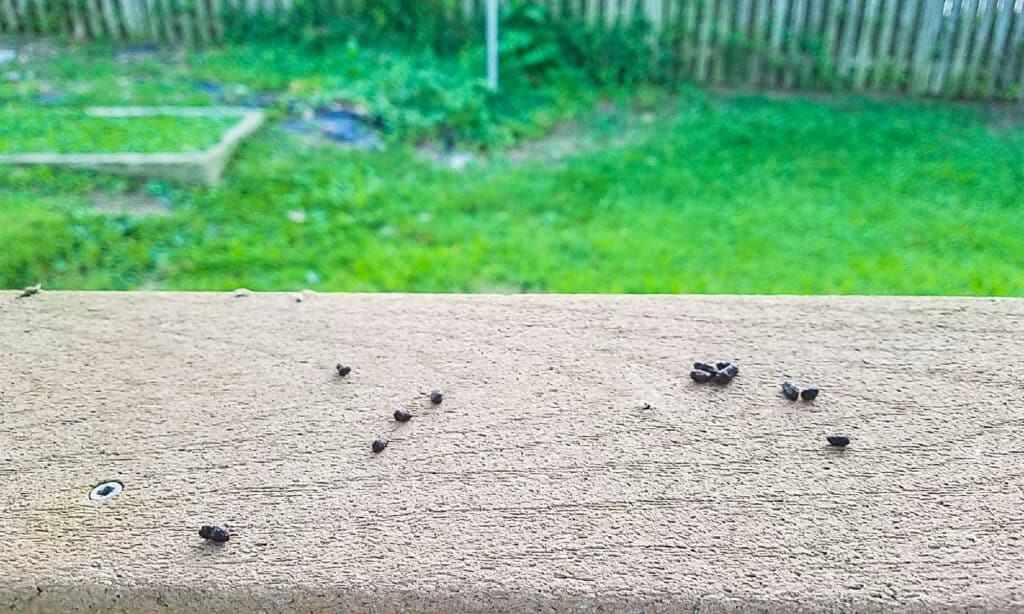
Though small in size, squirrel droppings can be extremely toxic.
©iStock.com/Justin Smith
As cute as they might be, most people don’t want a rodent from the wild in their home. You’ve likely heard that rodents like mice and rats carry and spread diseases through their droppings. This is why it’s dangerous to have an infestation of these seemingly harmless animals in your house. Squirrels are not much different. Their feces can be extremely toxic, carrying diseases and pathogens like Salmonella, leptospirosis, and tularemia, among others. Such bacteria can lead to serious infections in humans. If you encounter squirrel poop in your yard, try your best to avoid contact with it.
9. Squirrels Can Locate Food In the Snow
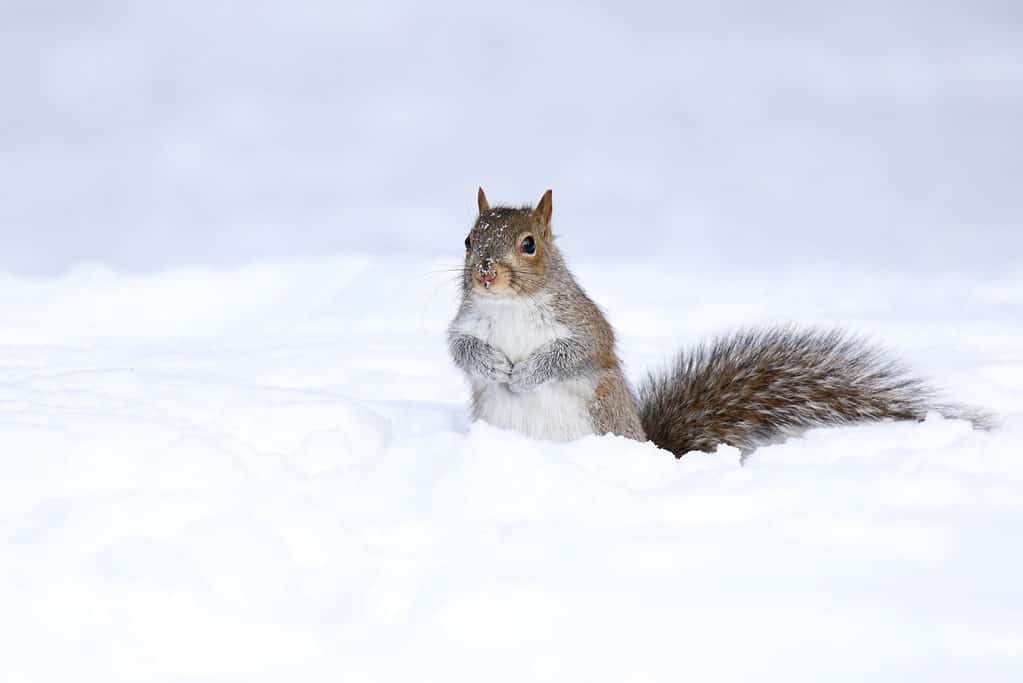
Squirrels store food to survive through the winter.
©iStock.com/suefeldberg
As mentioned earlier, squirrels have great spatial memory. In fact, they can even find food they’ve previously hidden in snowy conditions thanks to their memory and sense of smell. This helps the animal stay well-fed during the winter months, when food might otherwise be more scarce.
10. Squirrels Can Bark
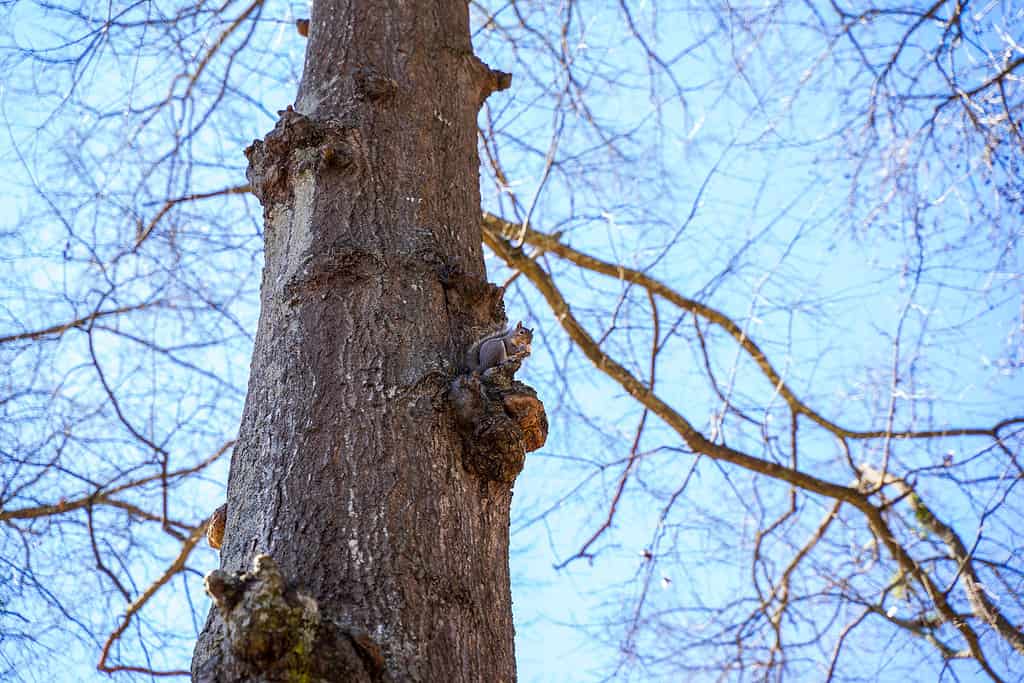
If a squirrel feels threatened, it will often “bark” to alert others of predators.
©Sister N/iStock via Getty Images
Did you know that squirrels can actually bark? While you’ve likely never heard a squirrel “woof!” like a dog before, these animals actually often make barking sounds that can alert others of danger. Squirrels make a variety of sounds, including screeches, snorts, chirps, and squeaks. However, if a squirrel is making a barking sound, it usually means there is a predator nearby.
The post 10 Things You Never Knew About Squirrel Teeth, Tails, and Poop appeared first on A-Z Animals.
June 10, 2025 at 05:22PMSammi Caramela
.jpeg)
.jpeg)

0 Comments